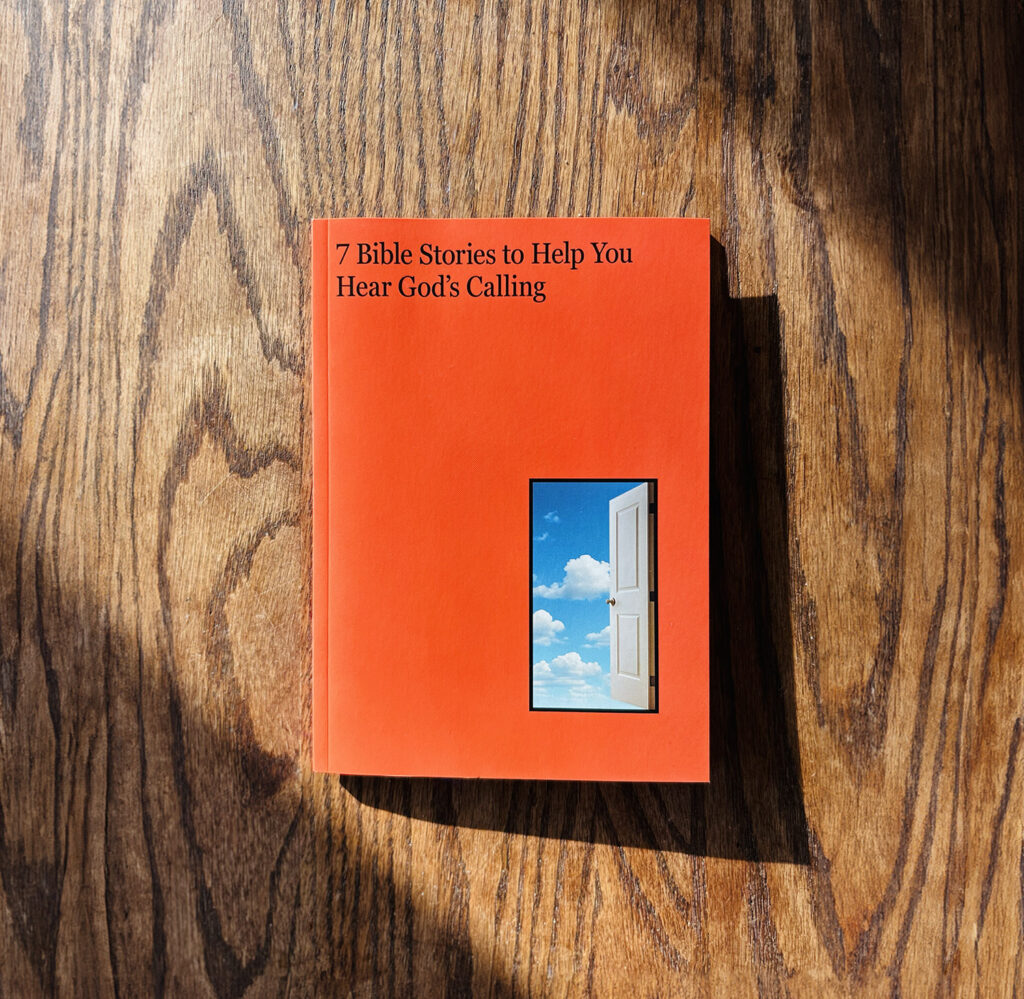In C.S. Lewis’s The Screwtape Letters, Uncle Screwtape advises his nephew and fellow demon, Wormwood, on how to tempt a human living during World War II. In one of his letters, Screwtape details why Wormwood must keep the human out of the present:
“The humans live in time but our Enemy [God] destines them to eternity. He therefore…wants them to attend chiefly to two things, to eternity itself, and to that point of time which they call the Present. For the Present is the point at which time touches eternity” (Lewis 75).
Screwtape continues to explain that in the present, God brings freedom and truth to humankind’s reality in two ways. First, contemplating eternity naturally pushes us to ponder God. Second, the present prompts us to meditate on our relationship with Him and whether we’re drawing nearer to or departing from Him. The present is also where we’re able to obey God, surrender our present desires to Him, receive grace for sins, and give thanks for His blessings (Lewis 75, 76).
Reading through The Screwtape Letters, I was surprised by how much of myself I saw on the pages, particularly later in this letter when Screwtape instructs Wormwood how to burden humans with shame over the past and anxiety for the future. I’ve succumbed to this temptation before, and as a result, I’ve been unable to experience God in the present.
Thankfully, the wonderful thing about the present is that it’s never too late to go back to it. The present moment is always a new mercy and a new gift.
But staying in the present, especially in our walk with God, is more challenging. It requires sorting through all the shame and anxiety attempting to draw us away from recognizing God’s presence.
Shame Entangles Us in the Past
Last year, I pursued a romantic relationship I shouldn’t have, and it ended in both of us getting hurt. Shame from my mistake dominated my thoughts day and night, at school and work, with friends and alone.
Not only was I reliving my mistake, but I was unable to accept God’s forgiveness or extend forgiveness to myself. Gradually, I pulled away from family and friends, my work and school responsibilities, and even my walk with God.
Thinking I had to become worthy of God’s love again, I exhausted myself with good deeds and legalism, strict dos and don’ts, meant to earn God’s favor. Still, this mistake seemed stuck to me like a stain. All I could think was, I’ll never be enough to make up for my past.
Today’s Anxiety for Tomorrow’s Worry
Not only were past mistakes on my mind, but on the other side of time, an uncertain future loomed. As I was entering another year of my Ph.D. program, I had a pile of medical bills my income couldn’t cover. Thoughts about the future crippled me. Do I quit the program? If I stay enrolled, how will I cover my bills?
The fear of choosing incorrectly hung over every decision. The future consumed my life and thoughts. Anxiety swept away any sense of God’s presence, even though it was available to me in that moment.
As Lewis writes, “Gratitude looks to the past and love to the present; fear, avarice, lust, and ambition look ahead” (76). My fear came from looking ahead, peering at a future without God and His faithfulness factored into it. All I could think was, What about tomorrow?
The Gift of the Present Eternity
In relaying these thoughts and experiences to my therapist, she recommended the practice of mindfulness. If that term makes you feel uncomfortable because you immediately think of non-Christian spirituality, stick with me. There’s much more to this term than how it is practiced in Eastern religions, and the idea of mindfulness itself is scriptural ( Isaiah 43:18-19; Isaiah 26:3; Psalm 119:15-16).
The Oxford Languages dictionary simply defines mindfulness as “a mental state achieved by focusing one’s awareness on the present moment, while calmly acknowledging and accepting one’s feelings, thoughts, and bodily sensations.”
So, I tried to feel my emotions without judgment. I worked on letting my thoughts pass without grabbing each one and proclaiming it as truth. And although this general mindfulness was helpful, like I mentioned earlier, there’s more to it for Christians.
As Ecclesiastes and the quote from The Screwtape Letters say, God calls us to walk with Him not only in the present but with our eyes on eternity.
“[God] has made everything beautiful in its time. He has also set eternity in the human heart; yet no one can fathom what God has done from beginning to end” (Ecclesiastes 3:11).
While no one completely understands eternity, Scripture tells us what eternity can mean to us now.
- To have a lasting and fulfilling purpose. (2 Timothy 1:9, Romans 8:28)
- To endure suffering that can still be used for our good and God’s glory. (Romans 8:18)
- To store treasures in heaven, which far outlast those on earth. (1 Peter 1:3-4)
- To believe God’s work in us will be made complete. (James 1:2-4, Philippians 1:6)
- To receive salvation, not by our works, but by Jesus’s work on the cross. (Ephesians 2:1-10)
When we layer this view of eternity on our thoughts, something happens to our fears, anxiety, regret, and shame.
First, it brings us to the throne of the one who has completely forgiven us. Psalm 103:12 says, “As far as the east is from the west, so far has he removed our transgressions from us.” This means our mistakes haven’t ruined God’s plan for us. And whatever we want to hide in shame, like a broken relationship for me, we instead trust that God allowed those things for a lasting, eternal purpose.
Second, we’re reminded of God’s everlasting love and care for us, for God has promised to provide for us and our futures. “And God is able to bless you abundantly, so that in all things at all times, having all that you need, you will abound in every good work” (2 Corinthians 9:8).
Third, meaning is brought back into our interactions with others and our daily lives. In the moments that feel inconsequential, mundane, difficult to bear, or aimless, we are often tempted to turn inward and focus on our immediate happiness. What will make me happy now?
But with the view of eternity, we’re instead prompted to consider why God has placed us where we are, how He wants to grow in our faith, and how He can use us for His kingdom work in the present. We’re revitalized with intention and purpose because we know our work on Earth matters, even in mundane moments or tough circumstances, since we’re investing in heavenly treasures instead of the fleeting things of this world.
Be Mindful
By looking toward eternity, God’s rich character—His compassion, kindness, forgiveness, and love—and the glory of His ultimate plan are brought into our present moments. I call this Christian mindfulness: to live in the present and long for eternity.
We see a depiction of Christian mindfulness from Abraham and his family.
“All these people [Abraham’s family] were still living by faith when they died. They did not receive the things promised; they only saw them and welcomed them from a distance, admitting that they were foreigners and strangers on earth…Instead, they were longing for a better country—a heavenly one. Therefore, God is not ashamed to be called their God, for he has prepared a city for them” (Hebrews 11:13, 16).
Instead of hiding from the past or fixating on the future, Abraham turned his eyes to eternity. There, he found meaning for his present joys and troubles.
And so will we, if we let God into our present moments, the beautiful and the ugly ones, the happy and the sad ones.
God wants to walk with us, step-by-step through life. He is not afraid of the bumps in the road or mistakes we’ll make. They don’t surprise Him or compromise His love for us. He just wants to be by our side.
Come back to the present. There, He will gladly meet you wherever you are.
Lewis, C. S. (1996). The Screwtape Letters. HarperCollins.


